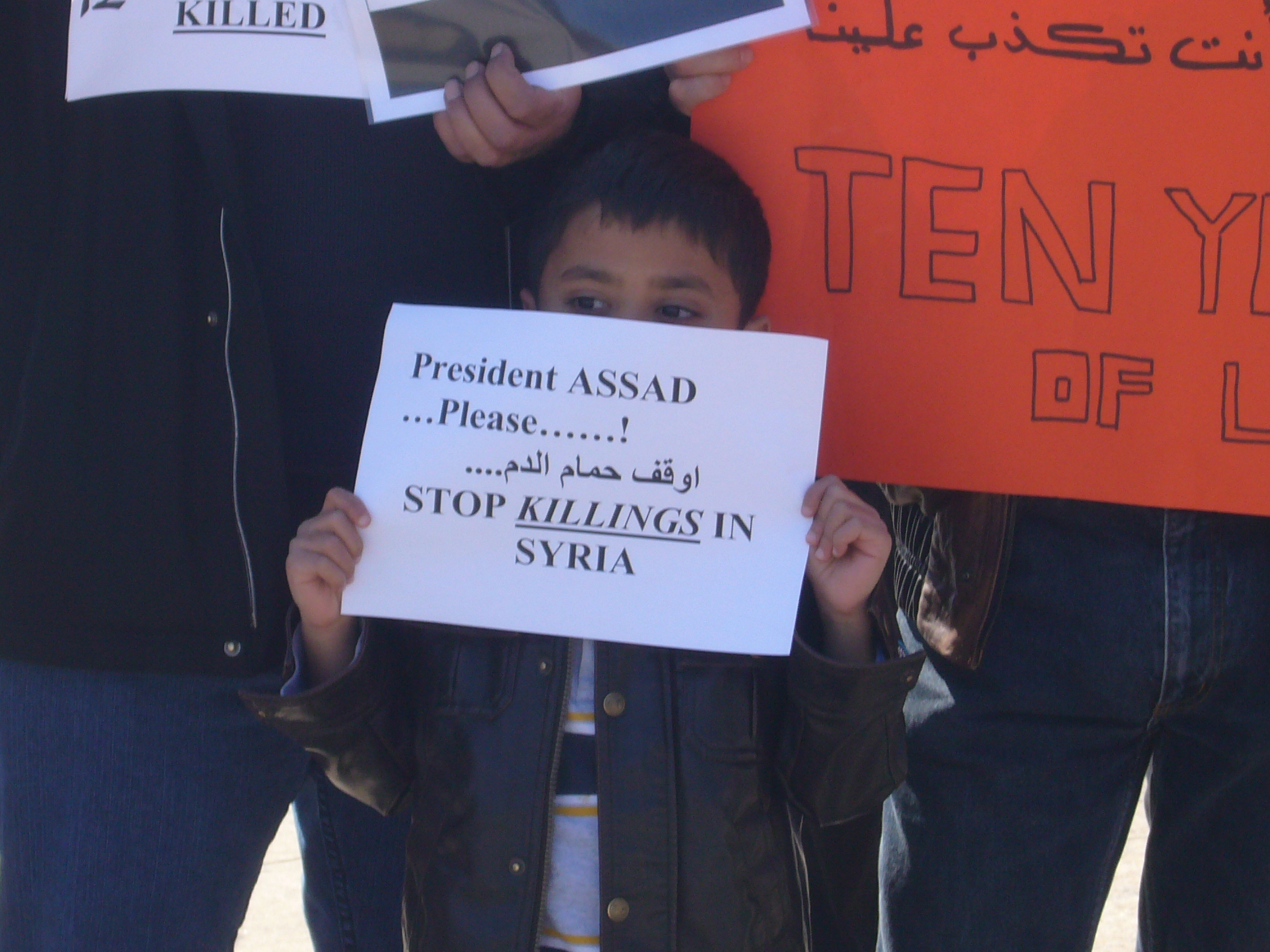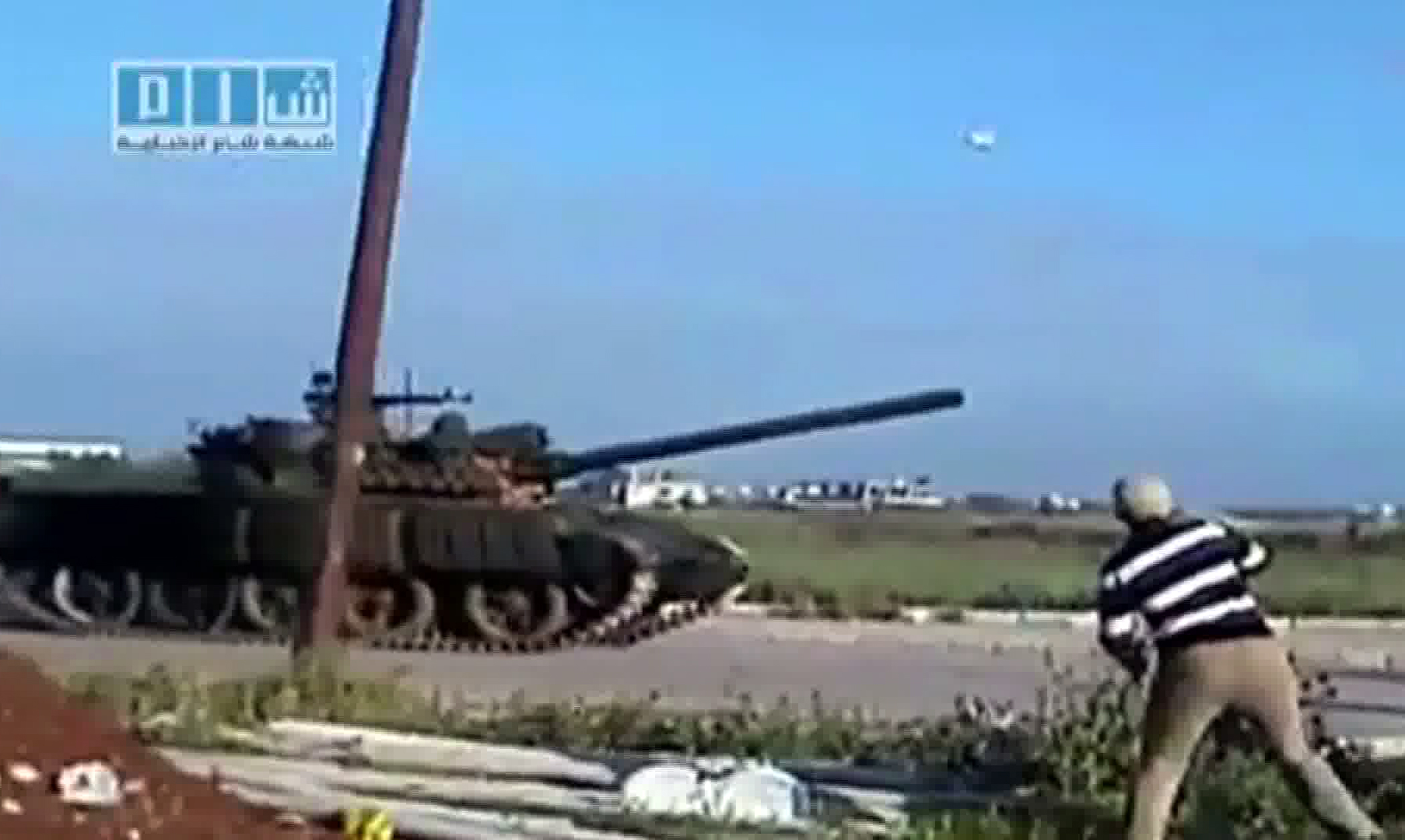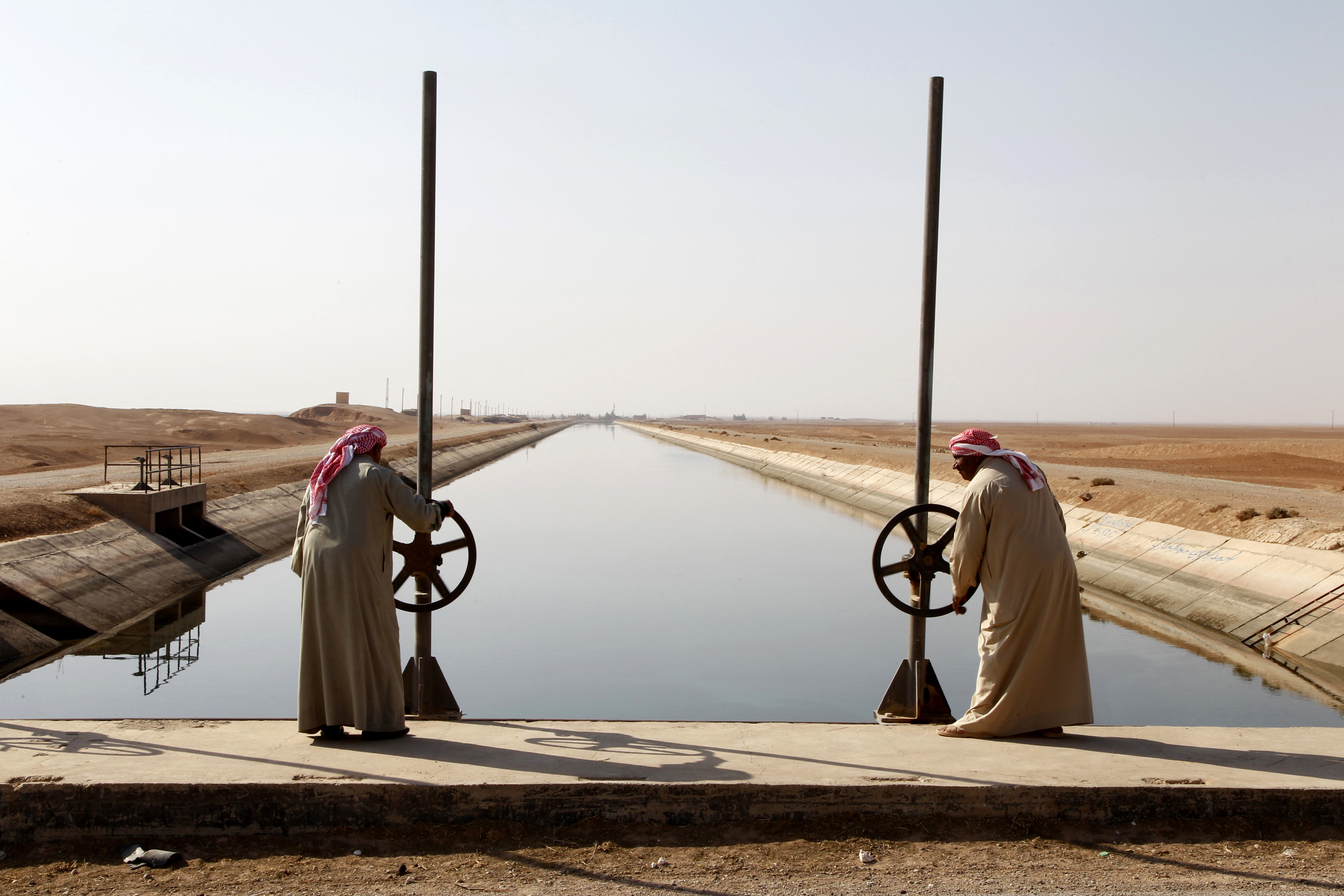Protests divide Syrians in Switzerland

The protests and subsequent government crackdown are dividing opinion among Syrians watching events unfold from Switzerland.
While some Syrians feel the protests are a consequence of the Arab Spring sweeping through North Africa, others say wider diplomatic forces are at work.
Although all the Syrians who spoke to swissinfo.ch acknowledged that Syria needed reforms, they had different views on how to achieve change, how extensive it should be and who is responsible for recent violence in the country.
Human rights groups say around 1,000 people have been killed since protests began in mid-March.
Raymond Arbash, a Swiss citizen of Syrian origin living in Fribourg, is convinced there is “a conspiracy directed at the country because of policies that do not appeal to western countries and Israel, their ally in the region”.
The ultimate aim of the events is to “break Syria’s ties to Iranian and the Palestinian resistance,” he adds.
Likewise, Suhail Kurriya, who has lived in Geneva for more than 30 years and works in a financial brokerage company, believes current events are the result of “external plotting, and a watertight plan from the opposition abroad”.
“What is happening is not a popular revolution as some media outlets claim.
They are events masterminded by Syrians with the aim of destabilising the country with the help of foreign powers,” he says.
Foreign conspiracy
Outside conspiracy or not, almost every country in the region has been grappling with demands for reform at some point since the Arab Spring began in Tunisia in December.
The regional picture is key to understanding what is happening in Syria now, according to Ameen Muhammad, editor-in-chief of the Arabic section of the Swiss-based Syrian opposition online news bulletin Subaru.
There cannot be such a conspiracy, he says, “because it is impossible for any foreign power to cause people to move in such large numbers and across this wide geographical area”.
Instead, Muhammad believes “the situation exploded as a result of the pressure, suppression and tensions experienced by Syrian citizens during long decades of persecution and injustice”.
The uprising in Syrian was to be expected, says Lafa Khalid, a Swiss-based Syrian journalist and spokesperson for a coalition of Syrian revolutionary youths.
“It’s natural that the Syrian people are revolting against a regime that has usurped power through a military coup for more than 40 years,” she notes.
“What is happening is a peaceful struggle for legitimate rights. Syrians are not demanding anything more than freedom.”
To say the Syrian regime has been targeted for its stance on Israel is “a weak excuse that the regime used to repeat in order to stay in power”, adds Muhammad.
Need for change
Views also diverge when it comes to establishing who is responsible for the violence used against protestors.
Ironically, both supporters and the opponents of the regime say there’s an urgent need for reform.
Kurriya, who is very much against the protest movement, says the demonstrators’ real goals go further than political reform. “There is a need for change in Syria, no one denies that, but that’s not the main cause of what is going on.”
“The situation is far from a massive popular movement similar to what happened in Tunisia or in Egypt. There is an armed group that is targeting the stability and security of the state.”
For activist Khalid however, “those leading the demonstrations at home are [representative of] the entire population”.
The Syrian community in Switzerland has its pro-regime advocates but they also recognise that the overall situation needs change and reform.
“I’m for reform, and if the regime doesn’t take the initiative to do it, I will stand against it [the regime],” says Arbash.
“By that I mean allowing a multi-party system, lifting the state of emergency, and eliminating bribery and administrative corruption by changing the existing administrative system in its entirety.”
But, the upheaval should end at reforms and not in overthrowing the entire regime, in case “extremist elements of Salafis and the Muslim Brotherhood reach [power] and shake the stability and co-existence between the sects of the country”, he says.
Stoking fears
Scaremongering about extremism and fears for the peaceful co-existence of sects is now meaningless and symptomatic of “maneuvering to dodge the responsibilities of a democratic transition in this country, where the Ba’ath regime settled into government after a military coup in the 1960s”, says Muhammad, while also dismissing the likelihood of civil war.
Stoking fears has been a part of the current regime’s way of also “playing the sectarian card”, says Khalid.
“In the beginning, it accused the demonstrators of being terrorists from outside and later said they were fanatical [Islamic] Salafis, and today it is brandishing the Alawi card [the religious community to which the Assad family belongs].”
“And because the al-Assad regime knows that it is going to go, it’s going to use all its possible cards.”
Regime opponents, who seem to be the majority among the community in Switzerland, have been demonstrating regularly outside embassies, and meeting with parliamentarians, Swiss officials and representatives of international organisations, to explain what’s happening on the ground.
A group of Syrians in Geneva has also established “the coalition of Syrians in Switzerland”. It plans to report on the situation on the ground in Syria for the Swiss media.
The Syrian political opposition is expected to hold a conference for on “saving” Syria in Turkey in June, according to Lafa Khalid, a member of the preparatory committee of the conference.
The conference’s top priority will be to stop violence being used against the Syrian people by the security forces.
Medium- and long-term goals of the conference remain: ending the one-party rule in Syria and preparing a new constitution.
Some of the attendees will propose the establishment of an interim government to fill the power vacuum after the fall of the regime.
Switzerland imposed sanctions against Syria, including a freeze on any assets held in Swiss banks by members of the Syrian regime from May 25.
The individuals listed, which include President Bashar al-Assad, are also subject to a travel ban.
The moves brought Switzerland into line with European Union sanctions.
It came in reaction to violent repression meted out by the army and security services of Syria against peaceful civilian demonstrators.
Anyone with information on relevant Syrian assets in Switzerland is required to inform the State Secretariat for Economic Affairs (Seco) without delay, the statement added.
(Adapted from Arabic by Muhammad Shokry)

In compliance with the JTI standards
More: SWI swissinfo.ch certified by the Journalism Trust Initiative













You can find an overview of ongoing debates with our journalists here . Please join us!
If you want to start a conversation about a topic raised in this article or want to report factual errors, email us at english@swissinfo.ch.